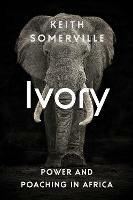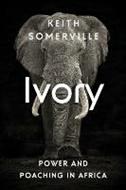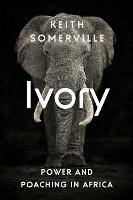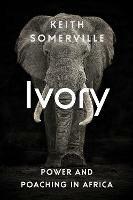Ivory: Power and Poaching in Africa
Despite the 1989 global ivory trade ban, poaching and ivory smuggling have not abated. More than half of Tanzania's elephants have been killed for their ivory since 2007. A similarly alarming story can be told of the herds in northern Mozambique and across swathes of central Africa. But why the new upsurge? The popular narrative blames a meeting of two evils - criminal poaching and terrorism. But the answer is not that simple.Since ancient times, large-scale killing of elephants for their tusks has been driven by demand beyond Africa's range states from the Egyptian pharaohs through the industrialising West to the new wealthy business class of China. Elephant hunting in Africa is also governed by human-elephant conflict, traditional hunting practices and the impact of colonial exploitation and criminalisation.Ivory follows this complex history of the tusk trade in Africa, and explains why it is corruption, crime and politics, rather than insurgency, that we should worry about. In this ground-breaking work, Somerville argues that regulation - not prohibition - of the ivory trade is the best way to stop uncontrolled poaching.
-
Autore:
-
Editore:
-
Anno:2019
-
Rilegatura:Paperback / softback
-
Pagine:415 p.
Le schede prodotto sono aggiornate in conformità al Regolamento UE 988/2023. Laddove ci fossero taluni dati non disponibili per ragioni indipendenti da Feltrinelli, vi informiamo che stiamo compiendo ogni ragionevole sforzo per inserirli. Vi invitiamo a controllare periodicamente il sito www.lafeltrinelli.it per eventuali novità e aggiornamenti.
Per le vendite di prodotti da terze parti, ciascun venditore si assume la piena e diretta responsabilità per la commercializzazione del prodotto e per la sua conformità al Regolamento UE 988/2023, nonché alle normative nazionali ed europee vigenti.
Per informazioni sulla sicurezza dei prodotti, contattare productsafety@feltrinelli.it



